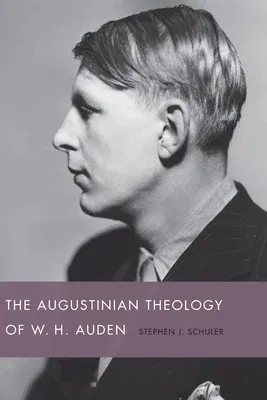When W. H. Auden returned to Christianity in the early 1940s, he
identified himself with what he called an "existential" method of
spiritual and literary inquiry, which the writings of St. Augustine
helped him define as a mode of thinking that not only allows for human
subjectivity, but emphasizes the hopes, fears, needs, desires, and
anxieties of the individual. Augustine thus became for Auden a model of
a thinker who seamlessly merged psychological reflection with
philosophical speculation and theological insight, and it is this
combination of introspection and theoretical investigation that shapes
much of Auden's later poetry.
The Augustinian Theology of W. H. Auden illustrates that Augustine's
thought is a major influence on Auden's postconversion poetry and prose.
Auden encountered Augustine both directly, through his reading of the
Confessions, and indirectly, through several of Auden's contemporaries,
such as Reinhold Niebuhr, Charles Norris Cochrane, and Charles Williams.
Stephen J. Schuler argues that Augustine provided Auden with the
language of privation to describe the nature of moral and social evil,
enabling him to make sense of the pervasive anxieties produced by World
War II. Augustine's works also offered Auden a rationale for his
intuition that the physical world, and especially the human body, is
intrinsically good. Auden's struggle to reconcile the implications of
his Augustinian theology with his attitudes toward romantic love and
sexuality are explained by Schuler, who demonstrates how the Augustinian
theology of Reinhold Niebuhr helped shape Auden's ideas about human
identity and community, which is defined and maintained by love in all
its various forms. Finally, Schuler analyses Auden's Augustinian view of
the ethics of poetry.
By examining the presence of Augustinian ideas in Auden's poetry and
prose, Schuler establishes the Augustinian origins of several crucial
but often misunderstood features of Auden's work as well as the
importance of Augustine in shaping and articulating the concerns of
Auden's later poetry.

